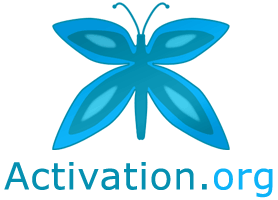The Virtual Wheel
The programme works because of the cumulative effect of the individual components.
Once the wheel got turning the children motivated each other into believing that they could succeed and deal with obstacles along the way.
-
1. Consistent Delivery
-
Consistency of relationships has been core to our success. The hands-on pastoral approach and leadership mean that the children benefit from relationships with local and foreign Activation staff. Monthly visits, regular residential workshops with full attendance by all participants provide a structure that the children can rely upon.
Seeing the same faces over a number of years is key to confidence in the process and the organisation, making the Activation children and staff a strongly bonded group. Consistent delivery has resulted in consistent improvement from the children.
-
2. Peer Group Formation
-
The children formed a peer group by participating regularly in the workshops. They made friendships with each other and shared some of their life experiences of coping in a world without parents advocating for them. They all came from a traumatized background having suffered loss of parents, the guidance and stability of a family environment.
They bonded through sharing their experiences, worries, hardships and then achievements. As they began to improve academically they encouraged each other’s belief and ability in each other to reach their goals.
-
3. Pastoral, psycho-social & medical
-
We address all of the needs of the children in a holistic way, providing one-on-one meetings where each individual’s particular obstacles are tackled. We gave them a structure in which to think about the support they were receiving and to identify what was expected from them to achieve their goals.
They all received vaccinations, medical and dental care where necessary. We provided local speakers on AIDS education on numerous occasions and encouraged the children to go for testing.
-
4. Life Choice Assistance
-
We met regularly to discuss the options they identified for themselves in terms of what they might achieve and what, if any, behavior or other issues existed which they needed help with. UK trustees also sat in on these meetings providing another perspective on their thinking and sometimes introducing new ideas into the mix. The children were stimulated in their thinking and exposed to another cultural mind-set about the issues they were facing. For example, we were able to provide information to them of other vulnerable children in the UK facing some similar issues of poverty and stigmatization, a perspective that only UK staff could provide.
It would be unrealistic to expect that by simply throwing financial and other resources at vulnerable children that they were immediately going to be able to utilize those resources and opportunities without some context, including our appreciation of the various psychological and other hurdles they face. Money and opportunity by itself is not something that all children can immediately utilize, they need individual assistance at various points with whatever issues they face. These children are vulnerable children without parents and their basic trust in adults in some cases has been tested or even broken. Each child faced at least two very difficult hurdles, sometimes running away or not showing up. We had to find them and assist them with whatever problem they were facing in addition to convincing them that we were there to assist them in completing the programme. For example, one girl ran away when she got pregnant thinking that we would kick her out of the programme. We found her and discussed what options were available to her and assisted her in getting child support so that she could eventually return to school as was her wish. She completed her secondary education and is now in University studying to be a teacher.
-
5. Strong local staff
-
Critical to the ability of the children to improve is the strong local staff support enjoyed, nurtured and recognized by the trustees. We suggested that the children see us as aunts and uncles available to be called upon to assist in problem solving.
-
6. New Ideas
-
New topics of environmental interest introduced in the workshops combined with cross-cultural exchange promoted an environment of introducing new ideas to the children from both the international participants and the workshop studies. We had a couple of guest facilitators from Canada and the UK leading workshops with the children. You can see the dance piece the children created with a UK dance artist called “Water Ways” on the workshop page.
For example after visiting the recycling centre one of the children started a composting programme in their school called "the beautification of the school programme". The children composted material and used it for feeding flower plants that they planted around the school. This was a direct consequence of new information put in action by one of the children.
-
7. Inclusion of care-givers
-
Care-givers, typically an extended familial relation of the children, were invited to attend the workshops and were explained the purpose of the programme. We relied on them to provide us with their views on how the children were coping and to bring to us any difficulties that may be arising for the children from other extended relatives, sensitively monitoring the social dynamics of each child’s extended familial environment.
